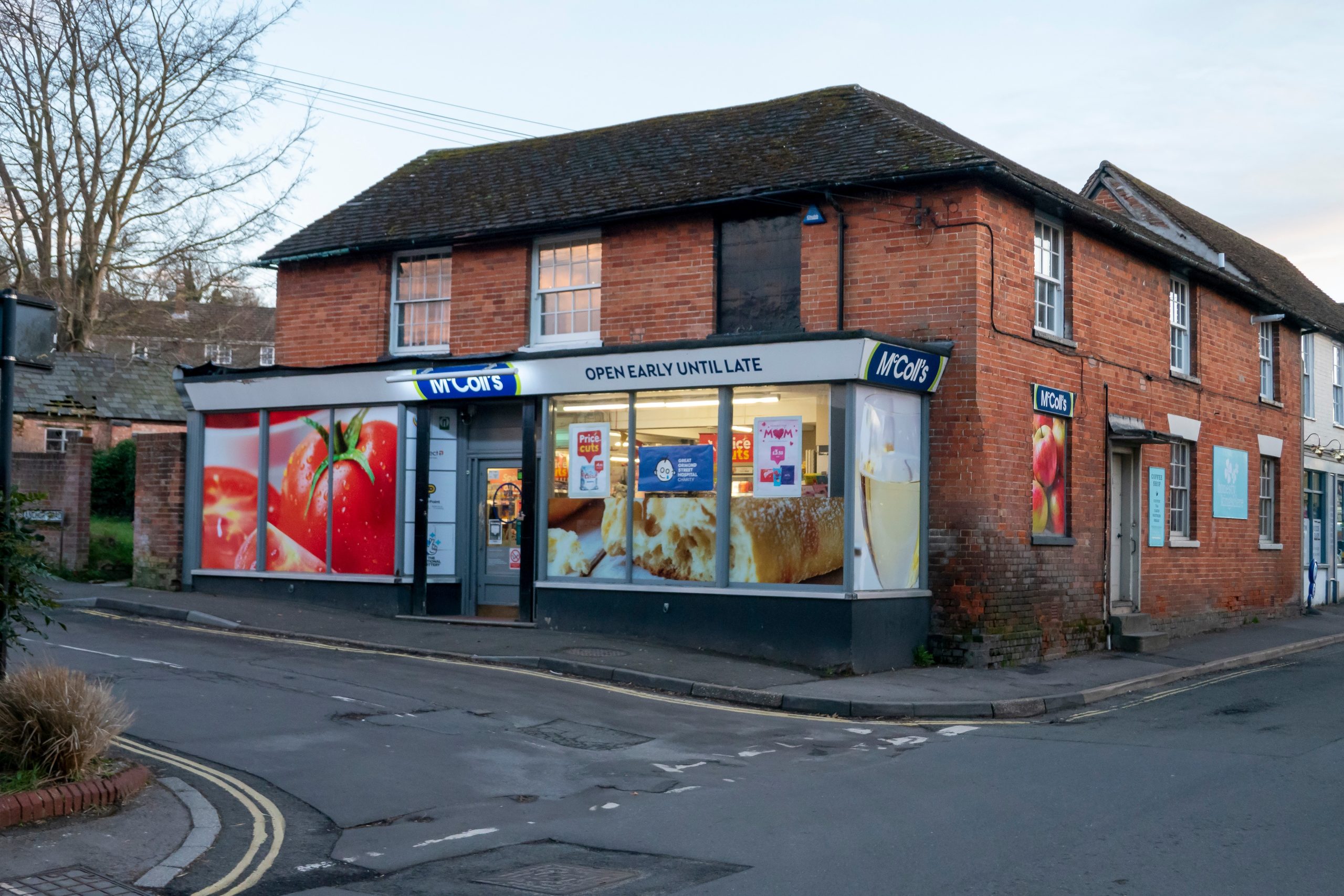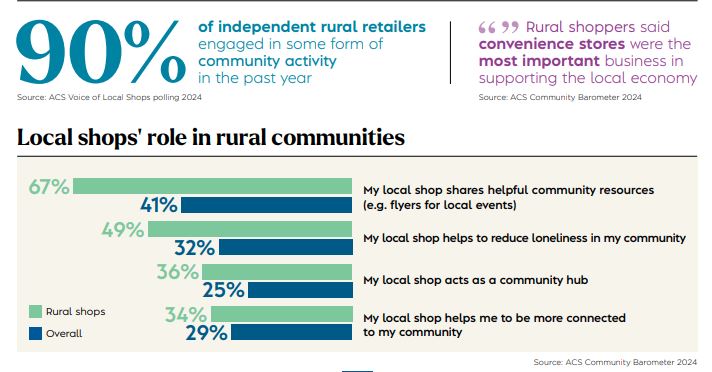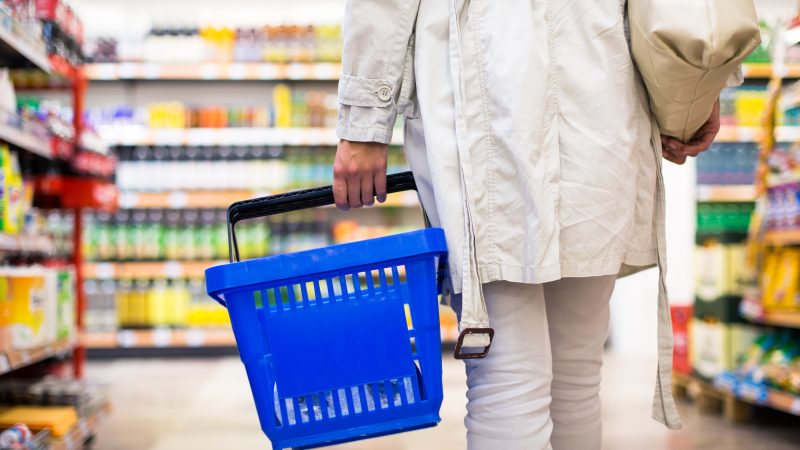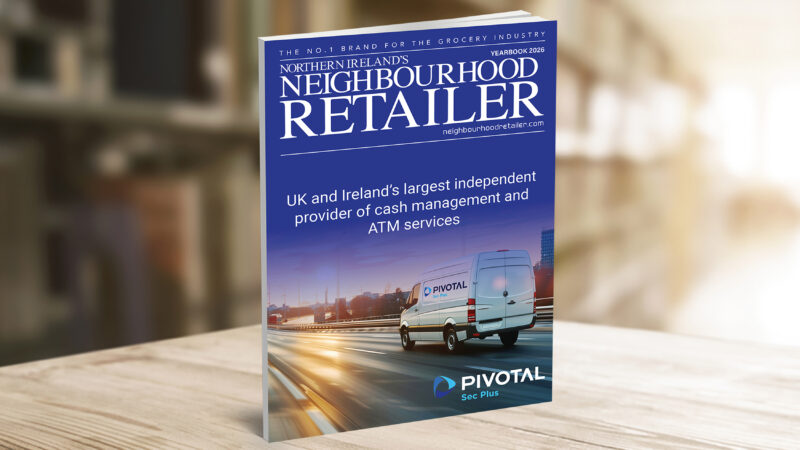Rural retailers provide vital community support: ACS report

Rural convenience stores are a crucial part of their communities, however face a number of significant challenges in today’s society.
The Association of Convenience Stores 2025 Rural Shop Report highlights the various ways retailers in rural communities make a difference to those communities. It also stresses the need for further support from government to ensure shops can continue to play that vital role.
With almost 19,000 rural shops in the UK, 76% are owned by independent retailers. Almost half (49%) are isolated stores, with no other retail or service businesses nearby.
40% of rural convenience stores are located on a small parade, with up to five retail or service businesses close by, while 11% are located on a larger parade or high street, with up to 10 retail/service businesses close by.
Rural shops operating by themselves in rural locations don’t have other businesses to draw in footfall, and with cash and carries often a distance away and wholesaler deliveries limited by the sparsity of businesses in the area, it can be costly and time consuming to access a range of foods.
As James Lowman, Chief Executive of the Association of Convenience Stores points out, rural shops often continue to face challenges when it comes to connectivity, something which was recently brought to bear when Storm Eowyn resulted in countless rural businesses being left without internet for over two weeks.

“While broadband provision and 4G/5G signals are improving, many rural shops still operate in areas where connectivity is slow and patchy, holding back investment in technology and other innovations in-store,” said James.
“Rural shops are increasingly acting as miniature high streets in their own right, taking on services that would have previously been available locally like access to cash, bill payments, Post Office services and prescription collections,” he added.
“In some cases, and especially in the case of providing access to cash through the provision of a free-to-use ATM, retailers are operating this service at a loss but are committed to doing so because of its importance to the community.”
Employing approximately 178,000 people, rural shops offer a variety of services including customer-operated coffee machines, in-store bakeries and hot food counters or cabinets.
Something of particular note in the report is that 90% of independent rural retailers engaged in some form of community activity in the past year. This is an area in which Northern Ireland retailers excel and have been rightly awarded for, having raised thousands of pounds for Northern Irish charities.
“The Rural Shop Report demonstrates the importance of these businesses, the services and technology that rural retailers are already investing in, and highlights the need for policymakers to include them in conversation about delivering services that their communities need in the same way as urban retailers,” added James Lowman.






